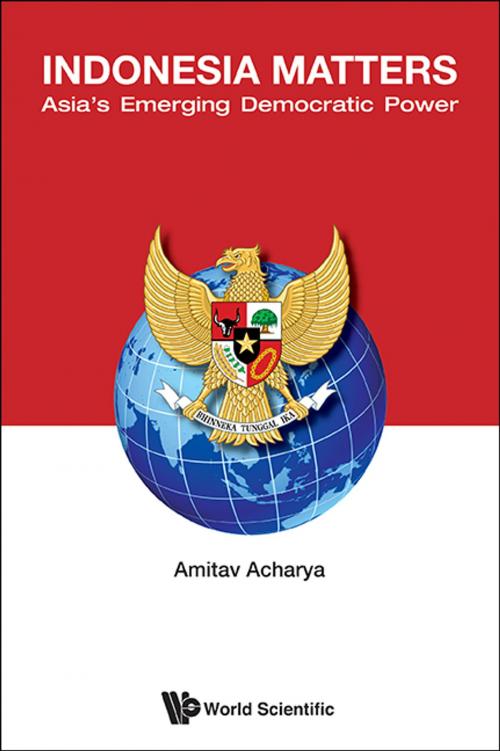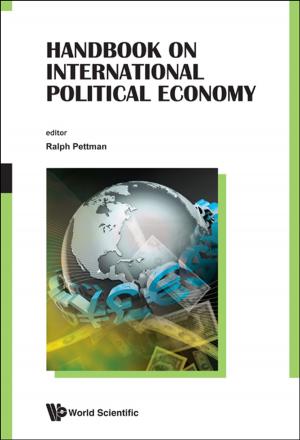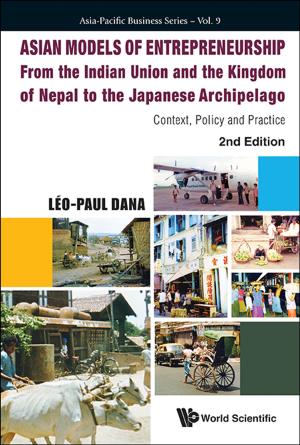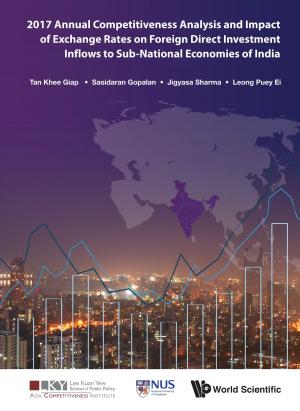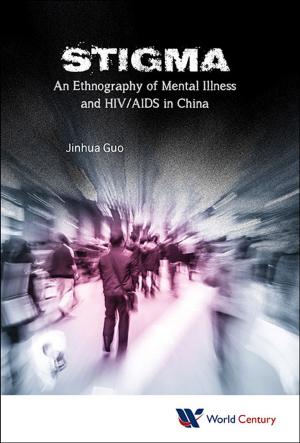Indonesia Matters
Asia's Emerging Democratic Power
Nonfiction, Social & Cultural Studies, Political Science, International, International Relations| Author: | Amitav Acharya | ISBN: | 9789814630726 |
| Publisher: | World Scientific Publishing Company | Publication: | August 1, 2014 |
| Imprint: | WSPC | Language: | English |
| Author: | Amitav Acharya |
| ISBN: | 9789814630726 |
| Publisher: | World Scientific Publishing Company |
| Publication: | August 1, 2014 |
| Imprint: | WSPC |
| Language: | English |
Indonesia is the fourth most populous country in the world after China, India and the United States. It is also the world's largest Muslim majority country and the third largest democracy. Its economy is currently the 10th largest on the global scale. Indonesia is recognized as an emerging power, and a respected member of the international community. It plays an important role not only in the Asia-Pacific region, but also in the world at large.
Indonesia has defied the grim predictions about its imminent collapse following the ouster of Suharto in 1998. Its ability to rebuild and reinvigorate itself into its current status is one of the most impressive stories of the late 20th and early 21st century. Its journey since the fall of Suharto is inspiring at a time when the world has seen many failing nations, recurring economic crises, and growing radicalism and terrorism. Yet, the Indonesian story receives far less attention than the BRICS (Brazil, Russia, India, China, and South Africa).
The Indonesian story suggests a different pathway to emerging power status. This pathway is based not so much on military or economic resources. Rather, it lies in the ability of a country to develop a positive, virtuous correlation among three factors: democracy, development and stability, while pursuing a foreign policy of restraint towards neighbours and active engagement with the world at large.
This is the key lesson from the story of Indonesia that this book seeks to present. It analyses Indonesia's foreign policy and international role under the democratic regime, with particular focus on its role as a leader of ASEAN, its relationship with the major powers of the Asia Pacific, and its place in the global order of the 21st century.
Contents:
- Why Indonesia Matters?
- Democracy, Development and Stability: Creating a Virtuous Cycle
- Indonesia and the Regional Architecture
- Indonesia and the Major Powers
- Indonesia as a Global Actor
- A Nation on the Move: Indonesian Voices
Readership: General public, students, policy makers, and think tanks intellectuals.
Key Features:
- First book that recognizes Indonesia as an emerging power
- First book in a long time on overall Indonesian foreign policy
- Among the first to study impact of democratization on foreign policy of Indonesia
Indonesia is the fourth most populous country in the world after China, India and the United States. It is also the world's largest Muslim majority country and the third largest democracy. Its economy is currently the 10th largest on the global scale. Indonesia is recognized as an emerging power, and a respected member of the international community. It plays an important role not only in the Asia-Pacific region, but also in the world at large.
Indonesia has defied the grim predictions about its imminent collapse following the ouster of Suharto in 1998. Its ability to rebuild and reinvigorate itself into its current status is one of the most impressive stories of the late 20th and early 21st century. Its journey since the fall of Suharto is inspiring at a time when the world has seen many failing nations, recurring economic crises, and growing radicalism and terrorism. Yet, the Indonesian story receives far less attention than the BRICS (Brazil, Russia, India, China, and South Africa).
The Indonesian story suggests a different pathway to emerging power status. This pathway is based not so much on military or economic resources. Rather, it lies in the ability of a country to develop a positive, virtuous correlation among three factors: democracy, development and stability, while pursuing a foreign policy of restraint towards neighbours and active engagement with the world at large.
This is the key lesson from the story of Indonesia that this book seeks to present. It analyses Indonesia's foreign policy and international role under the democratic regime, with particular focus on its role as a leader of ASEAN, its relationship with the major powers of the Asia Pacific, and its place in the global order of the 21st century.
Contents:
- Why Indonesia Matters?
- Democracy, Development and Stability: Creating a Virtuous Cycle
- Indonesia and the Regional Architecture
- Indonesia and the Major Powers
- Indonesia as a Global Actor
- A Nation on the Move: Indonesian Voices
Readership: General public, students, policy makers, and think tanks intellectuals.
Key Features:
- First book that recognizes Indonesia as an emerging power
- First book in a long time on overall Indonesian foreign policy
- Among the first to study impact of democratization on foreign policy of Indonesia
